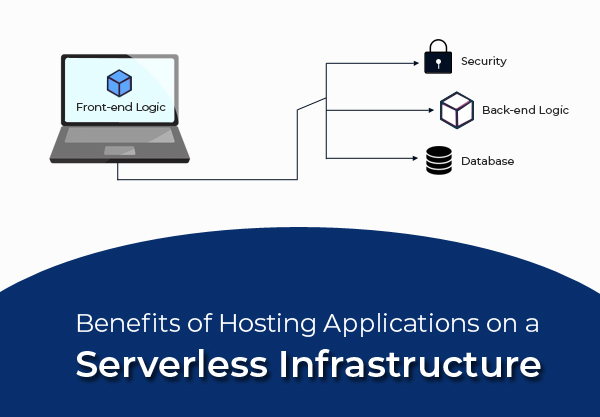We live in a world where less is more. In the past few years we’ve seen mobile phones going bezel less, earphones are going wireless, and now in a latest trend we’re seeing serverless computing on the rise. Computing without servers seems rather absurd at the first thought, but seeing at the growing popularity of the model, we went ahead and did some research on the topic. So what does serverless computing stand for? Serverless computing is a kind of cloud-computing execution model offered with pay-as-you-go pricing schemes. In a serverless computing model, the server is run by the cloud computing providers and also dynamically manages the allocation of resources. Contrary to its name a serverless computing doesn’t actually exclude the need of physical severs, in this case the developers do not need to be award of the servers.
The serverless ecosystem has many advantages and here are a few listed down below:
- Cost Effective: Purchasing or renting a fixed quantity of servers is quite costly due to the significant underutilization or idle time. Also, vendors will provide the pay-as-you-go model on a serverless environment, the end user has to pay only for the resources used. The user is only charged for the time and memory allocated to run their code along with associated fees for idle time.
- Pay-As-You-Go: As mentioned in the previous point, vendors will provide pay-as-you-go models for serverless environment. Developers are only charged for what they use, as the code automatically scales up and down as per needed. Some of the systems are so precise that they break-down charges to around 100 millisecond increment. In contrast, in a fixed server capacity environment, the developers will have to project their server upgradation in advance and purchase the requirement.
- No Management Hassles: As we already mentioned a serverless architecture doesn’t mean there are no servers involved. It simply means that the developers never have to worry about the servers. The server management is done by the cloud computing providers. This means that developers are never restrained by server capacity issues, which also brings us to the next point that is scalability of servers.
- Scalability of servers: Applications that are built on serverless infrastructure as the usage increases along with the ever-growing user base. In case many instances are needed to run a particular function the servers granted by the cloud computing providers will start up, run and end them at will. The process often uses containers, which results in serverless applications handling unusually high number of requests without hesitation. A traditional setup with a fixed server space is not capable of handling sudden spikes in usage.
- Decreased Latency: Since an application is not run on the origin server, it is possible to run its code from anywhere. This makes it possible to run application functions on servers that are close to the end user. Since, the functions are run close to the end user and the requests from the user do not have to travel to the origin server, there is a significant drop in the latency.

